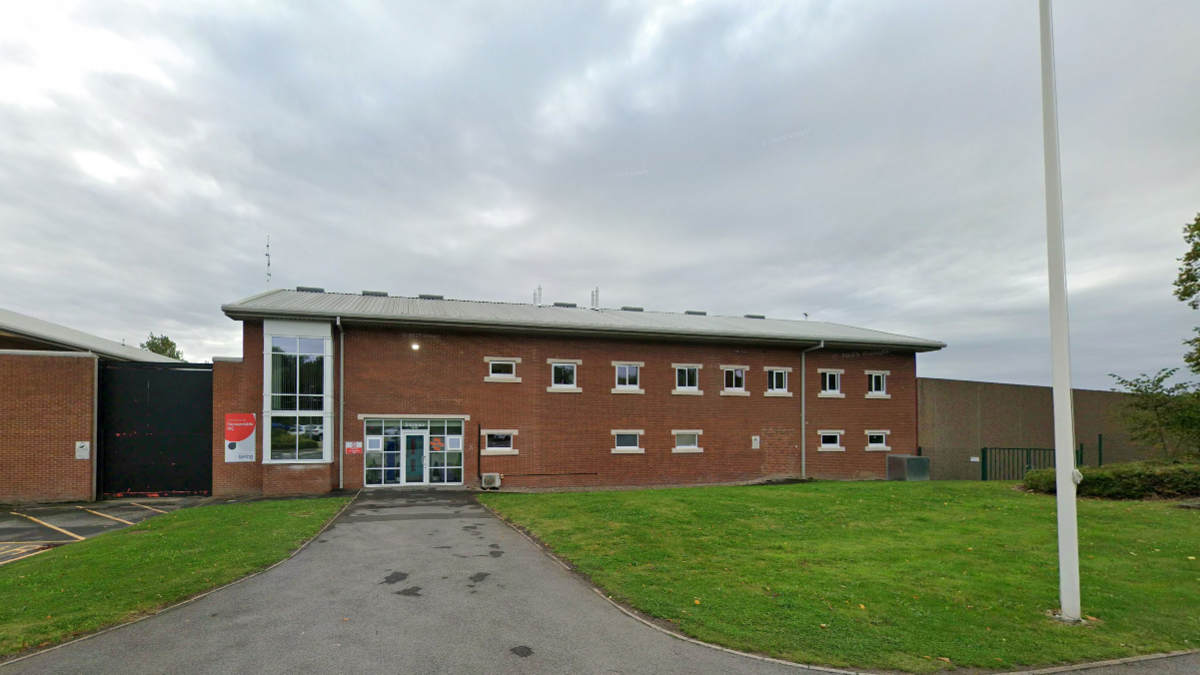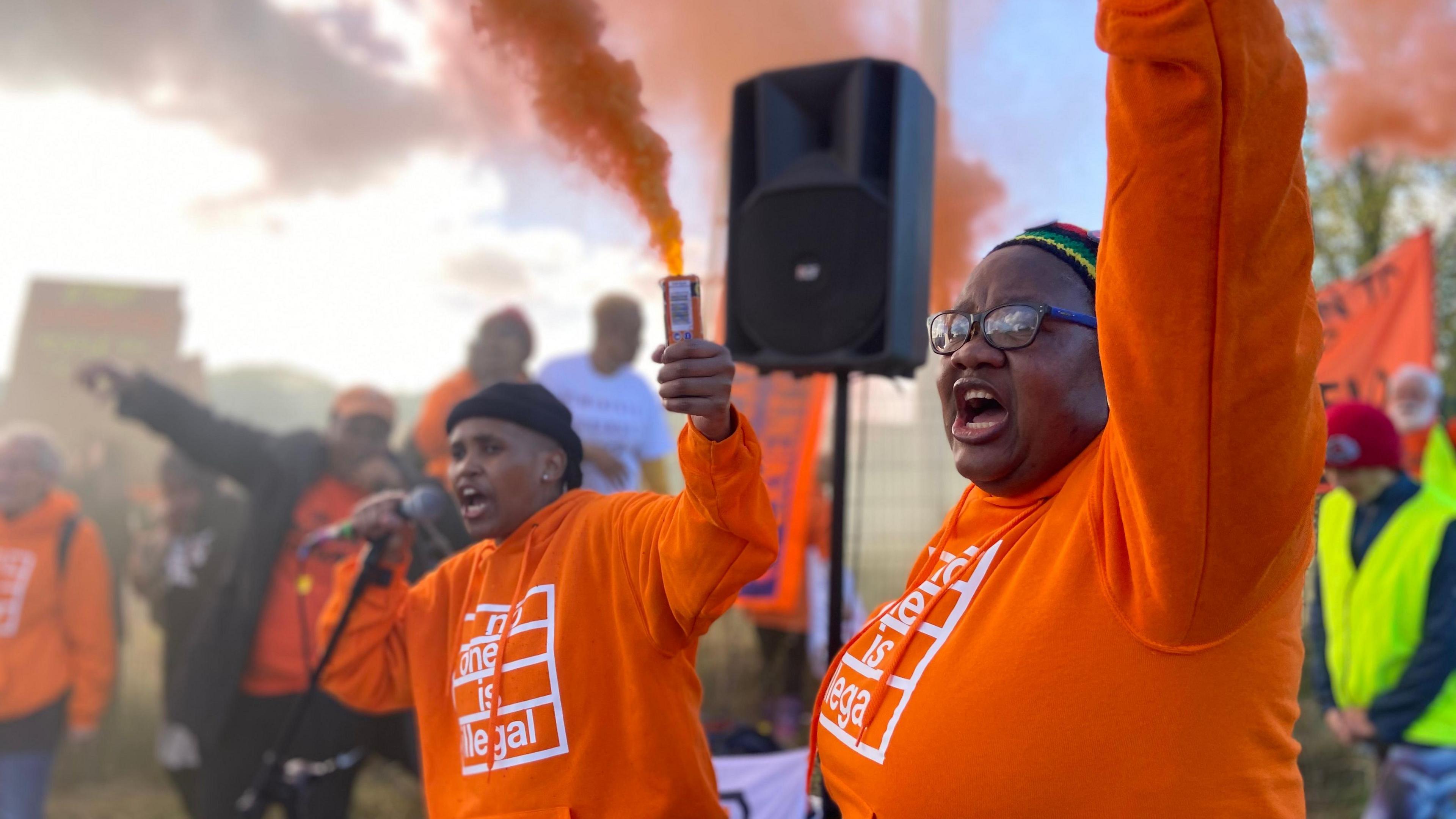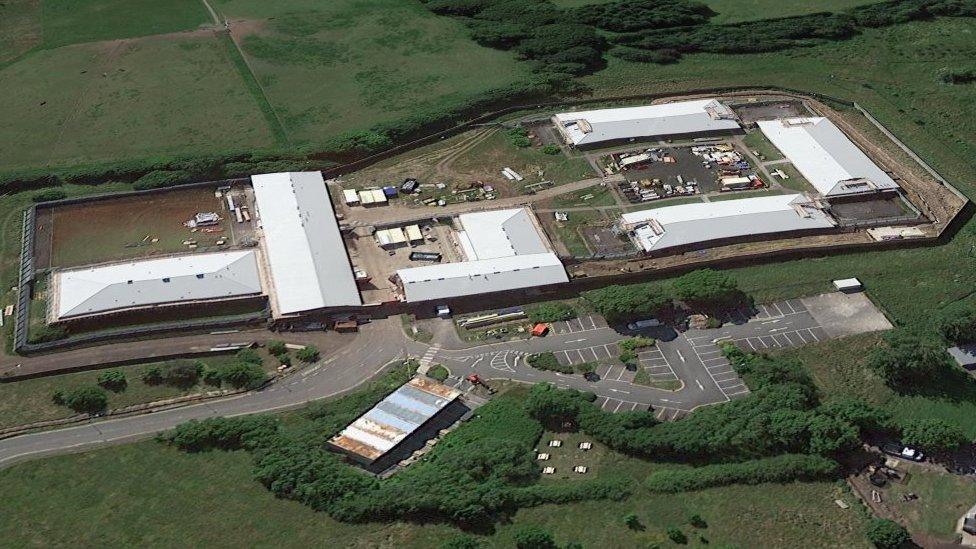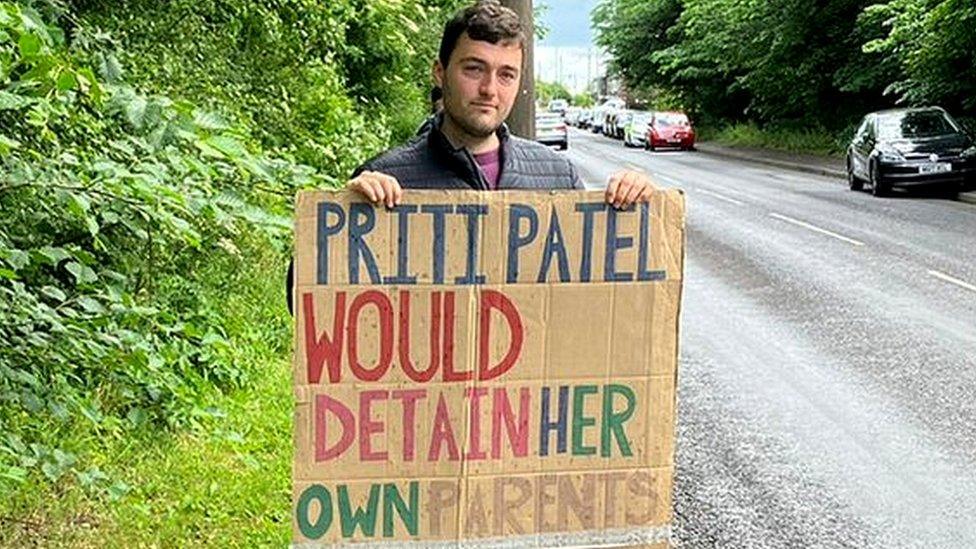Phone signal woes continue at detention centre

People held at Derwentside need access to phones to discuss their legal cases, among other things
- Published
People at a women-only detention centre continue to struggle with poor mobile phone signal despite the Home Office previously saying that finding a solution to the problem was a "priority piece of work".
The Independent Monitoring Board (IMB) said there had been "no progress" in improving phone reception at Derwentside Immigration Removal Centre in Consett, County Durham, since first detailing the issue in 2022.
The problem affected the women's contact with their family and friends as well as their legal cases, the IMB said.
The Home Office has been approached for comment.
In 2024, 1,130 women arrived at Derwentside and, while the majority left detention within 14 days of arrival, there were examples of detainees staying at the facility for several months.
More than 60% of the women released from Derwentside IRC were granted bail, the IMB said.
'Difficult and frightening'
The watchdog said residents were "frequently noted to be hovering by open windows or outside" while waiting for or taking part in calls, "regardless of the weather and temperature".
It said it had been more than two years since the Home Office said it was looking to introduce the ability for detainees to make calls via wi-fi, rather than mobile signals, as a potential solution to the site's poor reception.
The government had called it a "priority piece of work", the IMB said, though this technology has "not yet been introduced",
Dr Helen Groom from, the No To Hassockfield campaign group which seeks the closure of Derwentside, said this issue was particularly significant because many of the women were from other parts of the country so relied on phone calls to stay in touch with loved ones.
The IMB report also said Derwentside was "generally safe" and there were few incidents involving violence or the use of the force.
But overnight transfers to and from the site still remained "too high", the board claimed.
The IMB said women at the site may have been trafficked and experienced "difficult and frightening" journeys in the past, so long overnight trips may contribute to their "anxiety and fear".
It said about 24% of the women sent to the facility in 2024 had arrived overnight, which was an improvement on the "limited information" it had been given about overnight transfers in 2023.
Follow BBC North East on X, external, Facebook, external, Nextdoor and Instagram, external.
Get in touch
Do you have a story suggestion for BBC Wear?
Related stories
- Published19 October 2024

- Published6 December 2022

- Published29 June 2022
